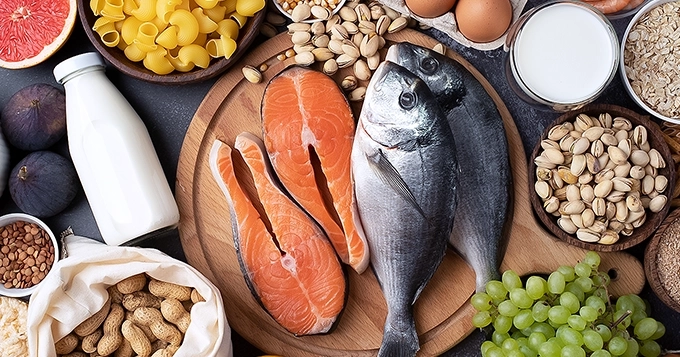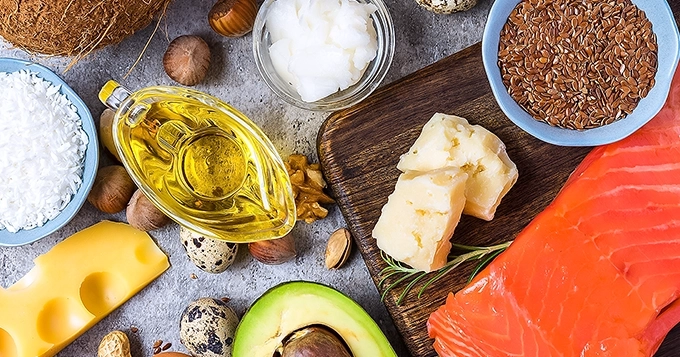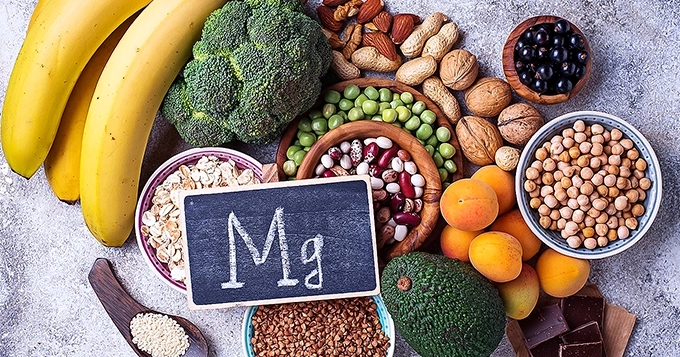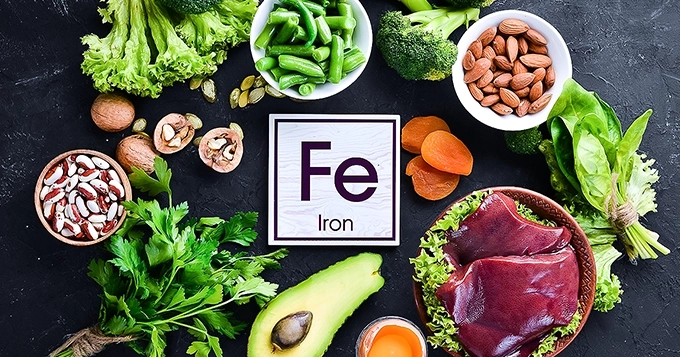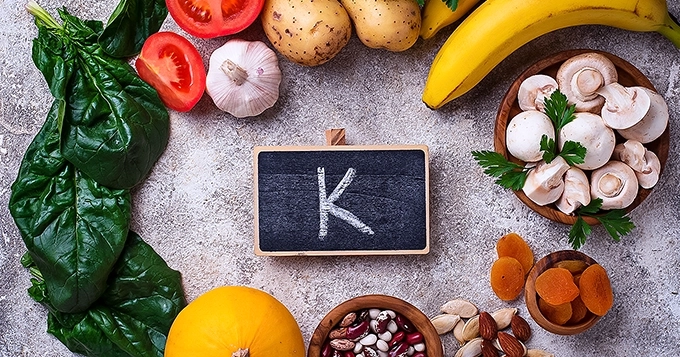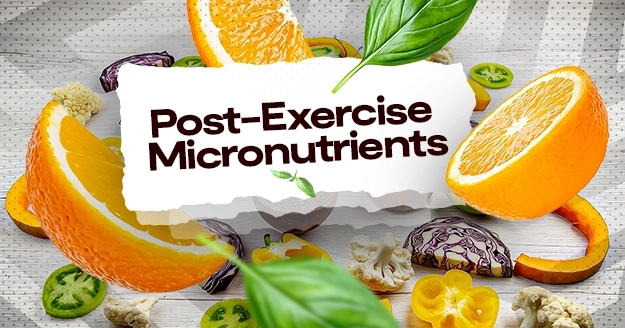After a vigorous workout, your body craves more than just water. It requires a delicate balance of macronutrients, such as carbohydrates and proteins, as well as micronutrients. These tiny but mighty substances play crucial roles in your body’s recovery process after exercise.
Micronutrients examples are vitamins and minerals that your body needs in trace amounts. They are further classified as macrominerals, trace minerals, and water- and fat-soluble vitamins.
Let’s delve into the essential list of micronutrients your body needs post-exercise to replenish, repair, and thrive.
Folic Acid
Your body relies on folic acid to generate red blood cells, which are crucial in transporting oxygen throughout your system. During physical activity, your oxygen demands increase, placing greater strain on these cells, and causing them to degrade at a faster rate.
Therefore, engaging in regular exercise, particularly at high intensities, increases the amount of red blood cells your body produces.
Since your body cannot synthesize folic acid on its own, maintaining an adequate dietary intake of this nutrient is essential. Insufficient folic acid levels can result in fatigue and the development of various health issues.
You need more folic acid the more exercise you perform.
Sources of Folic Acid
- Fortified foods
Vitamin B12
Vitamin B12 cooperates with folic acid, enabling your body to utilize it effectively. Folate supports tissue growth and proper cell function. Meanwhile, B12 aids in breaking down folate and utilizing it to generate new proteins and foster the formation of healthy red blood cells.
Without B12, the folic acid present in your body remains unused. Thus, to reap the advantages of folic acid, it is necessary to combine it with B12. Your body consumes B12 during exercise, much like it does with folic acid.
List of Food High in Micronutrients (Vitamin B12)
- Cheese
- Eggs
- Fish
- Meat
- Milk
- Some fortified breakfast cereals
Vitamin C
Vitamin C (ascorbic acid) is like the building blocks your body relies on to construct important structures such as blood vessels, cartilage, muscle, and bone collagen.
But it’s not just about construction. Vitamin C also aids your body’s healing process. When you get a cut or bruise, vitamin C steps in to help repair and rebuild damaged tissues, ensuring you recover swiftly.
After exercise, your body may benefit from adequate intake of Vitamin C due to its role in various physiological processes. Here’s why:
- Antioxidant Protection:
When you exercise, your body goes through changes, one of which involves producing reactive oxygen species (ROS). These are harmful compounds that can damage your cells and tissues if they build up too much.
Strong antioxidants like vitamin C work to counteract these dangerous substances, lessening the oxidative damage to tissues and cells. So, by taking in enough Vitamin C, you’re helping your body protect itself from the damage caused by exercise.
- Immune Function
Intense physical activity can momentarily suppress your immune system, increasing your vulnerability to infections. This vitamin is vital for immune function, supporting the production and activity of white blood cells that ward off infections.
- Collagen Synthesis
Micro-injuries can result from the stress that exercise puts on muscles, connective tissues, and joints. Collagen is a structural protein that aids in tissue maintenance and repair. It is synthesized with the help of vitamin C, which speeds up healing and lowers the chance of injury.
- Iron Absorption
Intense exercise can increase the demand for iron due to its role in oxygen transport and energy production. This micronutrient also enhances the absorption of non-heme iron (iron found in supplements and plant-based foods), which is essential for replenishing iron stores depleted during exercise.
- Reduction of Muscle Soreness
Some research suggests that Vitamin C supplementation may help reduce muscle soreness and speed up recovery following intense exercise sessions.
Sources of Vitamin C
- Blackcurrants
- Broccoli
- Brussels sprouts
- Bitrus fruit, such as oranges
- Peppers
- Potatoes
- Strawberries
Vitamin E
Vitamin E is a fat-soluble vitamin. Although there are various forms of vitamin E, the human body only uses alpha-tocopherol. This vitamin also plays a role in supporting your body after exercise. Here’s why:
- Antioxidant Protection
Similar to Vitamin C, Vitamin E is a potent antioxidant. After exercise, your body may experience oxidative stress due to the production of reactive oxygen species (ROS). Vitamin E helps neutralize these harmful compounds, protecting your cells and tissues from oxidative damage.
- Muscle Recovery
Exercise can lead to micro-tears in your muscle fibers, especially during intense or prolonged workouts. Vitamin E supports muscle recovery by reducing inflammation and promoting the repair of damaged muscle cells, which can help you recover faster and perform better in subsequent workouts.
- Heart Health
Regular exercise is beneficial for cardiovascular health, but it can also temporarily increase oxidative stress in the heart. Vitamin E’s antioxidant properties help protect the heart from oxidative damage, contributing to overall heart health and reducing the risk of cardiovascular disease.
In a review from 2019 analyzing 18 studies, it was discovered that vitamin E supplements effectively lowered systolic blood pressure (the top number in blood pressure readings) when compared to placebos. However, no significant effect was observed on diastolic blood pressure (the bottom number).
- Anti-inflammatory Effects
Exercise-induced inflammation is a normal response to muscle damage, but excessive inflammation can slow down your recovery time and increase the risk of injury. This micronutrient has anti-inflammatory properties that can help reduce inflammation, easing post-exercise muscle soreness and discomfort.
Vitamin E Micronutrients Examples
- Almonds
- Avocado
- Fish
- Peanut Butter
- Pine Nuts
- Red Bell Peppers
- Sunflower Seeds
- Wheat Germ Oil
Magnesium
Magnesium is essential to the body’s operation. It supports healthy blood pressure, bone formation, normal muscle function, and energy metabolism.
You lose magnesium through sweating, which is why most experts agree that taking magnesium after working out helps speed up muscle recovery.
Because magnesium lowers inflammation, it lessens the possibility of experiencing fatigue and muscle soreness that can occur after a workout. Additionally, magnesium contributes to a higher synthesis of ATP (adenosine triphosphate), the energy responsible for driving muscular contractions.
Sources of Magnesium
- Almonds
- Brown rice
- Peanut butter
- Pumpkin
- Salmon
- Soy milk
- Spinach
Iron
Exercise can increase the body’s demand for iron due to factors like sweat loss and muscle damage. Iron is needed for transporting oxygen to your muscles and supporting energy production.
Sources of Iron
- Beans, such as edamame beans red kidney beans, and chickpeas
- Dried fruit – such as dried apricots
- Fortified breakfast cereals
- Liver
- Nuts
- Red meat
- Soybean flour
Potassium
Potassium is a mineral and electrolyte. Here are a few ways potassium helps your body after you’re done exercising.
- Electrolyte Balance
Potassium is an electrolyte, along with sodium, chloride, calcium, and magnesium. During exercise, especially intense or prolonged activity, you lose potassium through sweat. Replenishing potassium post-exercise helps restore electrolyte balance, which is needed for maintaining proper hydration levels, muscle contraction, and nerve function.
- Fluid Balance
Potassium helps regulate fluid balance within cells, which is essential for cellular function and overall hydration. Adequate potassium intake post-exercise supports fluid balance, preventing dehydration and promoting optimal cellular hydration for efficient recovery.
- Muscle Function
This micronutrient affects muscle contraction and relaxation. After exercise, your muscles may experience fatigue and cramping due to potassium depletion. Consuming potassium-rich foods or supplements post-exercise can help alleviate muscle cramps, promote muscle recovery, and restore optimal muscle function.
Sources of Potassium
- Avocado
- Beets
- Bok choy
- Potato
- Spinach
- Sweet potato
- Swiss chard
- White beans
Conclusion
Remember, achieving optimal recovery after exercise isn’t just about macronutrients. Taking into consideration this micronutrients list can help you support your body’s ability to repair, recover, and perform at its best. So, when you hit the gym or lace up your running shoes, don’t forget to nourish your body with these essential micronutrients for post-exercise replenishment and vitality.

